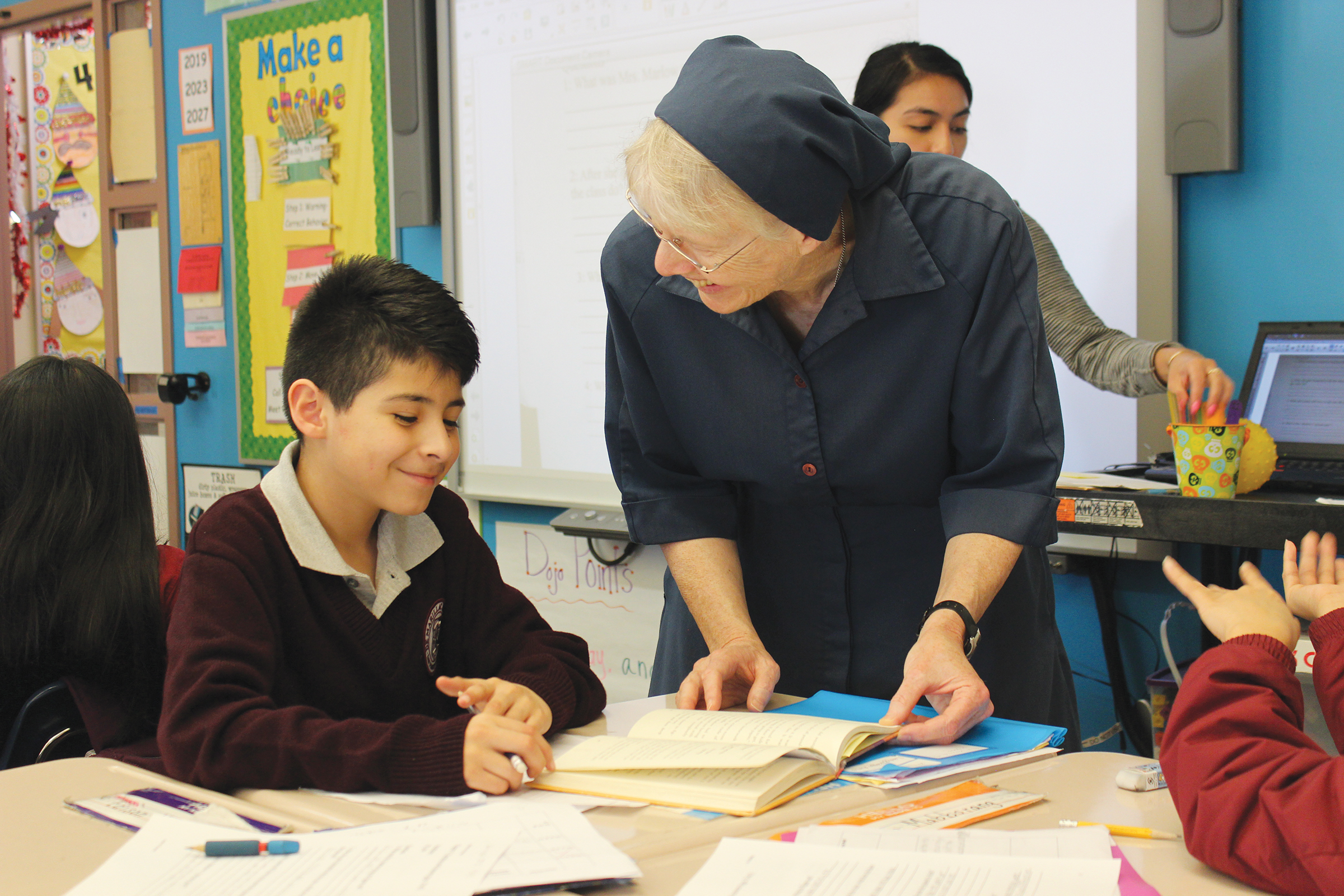
The phrasing of this question suggests a difficult academic experience! The church’s role as teacher, expressed as magisterium, describes the church as “master” in the school of faith. But who, precisely, holds this authoritative position? Thomas Aquinas applied the term magisterium to the university professor (master of a given subject) as well as to the bishop. Our present understanding limits the teaching role to popes and other bishops, who in turn rely on Scripture and tradition.
Most of us are lulled by our past schooling to equate teaching with telling—and not listening as grounds for failure or even expulsion. “I am teacher, hear me impose!”, as a professor once summarized. This relationship to the teacher/headmaster presumes that teaching is a matter of laying down the law or the truth. If teaching is merely telling, then what the bishop says, rules. Not submitting is therefore a kind of crime with consequences that match the severity of the offense.
The Old Testament word for law or commandment is also understood as guidance. Law dominates from a higher position; guidance operates as a benevolent companionship—like the fellow holding the lamp just ahead so you can find your way on the footpath. This fellow may call out instructions—“Avoid the thorny branches on the left!”—because if you don’t, there will be consequences, some costly. Yet this fellow’s not out there to identify and punish your failures along the route. His intent is always that you make your way safely.
“Teaching is a real-world intervention,” as professor Molly Hiro notes. It’s not about imparting abstract truths written in stone but awakening an appreciation for the rules that govern reality. History is full of competing truths that have led along some pretty dark routes. When the church teaches, it shines light on the path to assist our discernment of the morally secure way. Just as in mathematics, not all rules are created equal. Some bend, others are unyielding. It takes practice and experience along the path to know which is which.
When Augustine reflected on a more biblical relationship to law, he arrived at this conclusion: “Love, and do as you will.” If love truly does shape and inform our will, then we can safely follow it. The church describes this condition as “the informed conscience,” the highest authority to which we must answer. This doesn’t mean we should ignore the fellow with the lantern, calling out from his long mastery of this road. Love is the subject he’s mastered, and it’s the lamp he shares with us.
Scripture: John 8:31-32; 13:34-35; 14:6; Romans 13:8-10; 1 Corinthians 12:4—13:13
Books: The Church, Learning and Teaching: Magisterium, Asset, Dissent, and Academic Freedom – Ladislas Orsy (Wilmington, DE: Michael Glazier, 1987)
With the Smell of the Sheep: the Poe Speaks to Priests, Bishops, and Other Shepherds – Pope Francis (Maryknoll, NY: Orbis Books, 2017)





